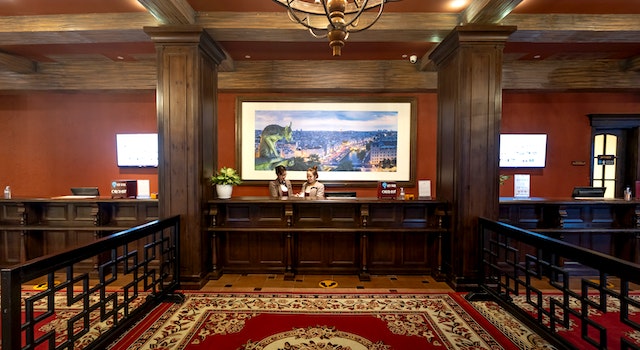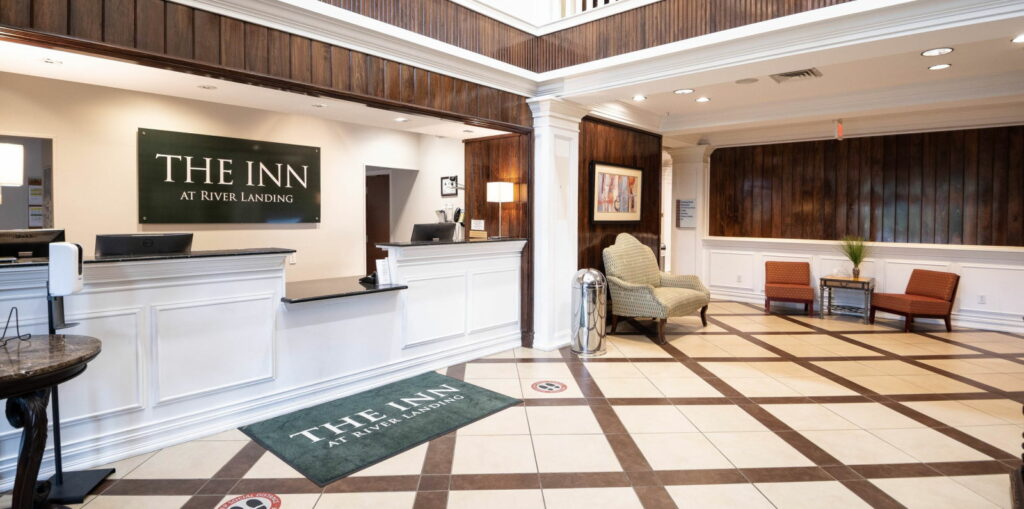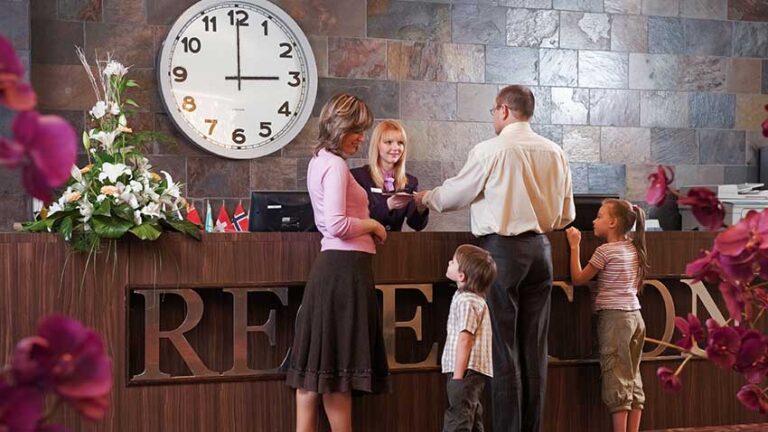Why Do Hotels Charge More Per Person

Hotels charge more per person due to increased costs for additional amenities, resources, and services provided.

Credit: riverlanding.com
Navigate Where You Want:
- Factors Influencing The Price Difference
- Additional Costs Per Person
- Pricing Strategies Implemented By Hotels
- Comparison With Alternative Accommodation Options
- Impact Of Occupancy Rates On Pricing
- Customer Perception And Value Justification
- Strategies For Cost-Effective Accommodation
- Transparency In Pricing And Consumer Awareness
- Frequently Asked Questions On Why Do Hotels Charge More Per Person
- Why Do Hotels Charge More Per Person?
- Conclusion
Factors Influencing The Price Difference
Hotels charge more per person due to several factors that influence the price difference. The types of accommodation available play a role in determining the cost. Luxurious suites and rooms with added amenities like jacuzzis or private balconies tend to be pricier.
The range and quality of services provided also contribute to variations in charges. Hotels offering additional perks such as room service, spa facilities, or personalized concierge services may charge more. The location and demand for a particular hotel significantly impact the pricing.
Hotels in prime and bustling areas or near famous attractions often charge higher rates. Furthermore, seasonal variations influence hotel prices, with peak tourist seasons experiencing increased costs.
Additional Costs Per Person
Hotels often charge more per person due to additional costs associated with accommodating multiple guests. These costs can include charges for extra bedding and room setup to ensure all guests have a comfortable stay. Another factor is the provision of complimentary breakfast, where the hotel needs to account for the added expenses of providing food for each guest.
Additionally, hotels may offer extra amenities and services for each person, such as access to the gym or spa, which contribute to the higher charges. Lastly, there may be convenience fees for multiple guests, as the hotel needs to allocate resources and staff accordingly.
These factors combined, justify hotels’ decision to charge more per person, covering the extra expenses involved in meeting the needs and preferences of each individual guest.
Pricing Strategies Implemented By Hotels
Hotels charge more per person as part of their pricing strategies. This approach helps them maximize revenue through incremental pricing. They target business travelers and high-end tourists who are willing to pay more for the perceived value and luxury branding.
By charging a higher rate per person, hotels can position themselves as exclusive and high-quality establishments. This pricing strategy allows hotels to cater to the needs and expectations of their target market. It also enables them to provide personalized services and amenities that enhance the overall guest experience.
Ultimately, hotels can generate higher profits by implementing such pricing strategies, ensuring that they remain competitive in the industry and meet the demands of discerning travelers.
Comparison With Alternative Accommodation Options
Hotels often charge more per person compared to alternative accommodation options such as hostels and dormitories. These budget-friendly alternatives provide shared spaces where multiple guests can stay at lower rates. Another option is vacation rentals and home-sharing platforms, which offer a wide range of affordable accommodations.
Additionally, bed and breakfast establishments provide a cost-effective choice for travelers. These alternatives offer a unique and personal touch, allowing guests to experience local culture and hospitality. They are often preferred by budget-conscious travelers seeking value for their money. The pricing structure of hotels, on the other hand, accounts for a range of amenities and services that they offer, which can contribute to the higher costs.
Ultimately, the choice between different accommodation options depends on individual preferences and priorities.
Impact Of Occupancy Rates On Pricing
Hotels charge more per person due to the impact of occupancy rates on pricing. The supply and demand dynamics play a crucial role in determining the prices. Balancing profitability with occupancy rates is a key consideration for hoteliers. They employ yield management strategies to achieve this delicate balance.
By optimizing room rates based on demand and availability, hotels can maximize their revenue. This strategy ensures that rooms are priced higher during peak periods when demand is high. On the other hand, during off-peak periods, hotels may offer discounted rates to attract more guests.
These pricing strategies help hotels manage their inventory effectively and enhance their profitability. So, the next time you wonder why hotels charge more per person, remember the supply-demand dynamics and yield management strategies at play.
Customer Perception And Value Justification
Hotels often charge more per person because of customer perception and the need to justify value. The perceived value of personalized services is one reason for the higher prices. Guests expect added convenience and comfort when staying at a hotel, which often comes at a higher cost.
In addition, hotels compare the services they provide with the price charged. By offering a range of amenities and experiences, hotels aim to create a unique value proposition. This comparison helps justify the higher prices and allows hotels to maintain their reputation and competitiveness in the industry.
As a result, customers are willing to pay more per person for the enhanced experience and personalized services that hotels offer.
Strategies For Cost-Effective Accommodation
Hotels charge more per person for various reasons, including operational costs and amenities provided. To find cost-effective accommodation, consider strategies such as group bookings and discounts. These options can help reduce the overall cost per person. Another approach is taking advantage of off-peak season offers, as hotels often offer lower rates during less busy times.
Additionally, exploring budget hotels and alternative accommodation options can be a smart choice. By considering these strategies, you can make your stay more affordable and still enjoy a comfortable and convenient experience. So, next time you’re planning a trip, remember these cost-effective accommodation tips to ensure you get the most value for your money.
Transparency In Pricing And Consumer Awareness
Hotels often charge more per person to maintain transparency in pricing and promote consumer awareness. Clear communication of charges and fees is essential to avoid any surprises upon check-in. Online reviews, ratings, and comparisons enable individuals to make informed decisions based on pricing information.
By providing transparency in pricing, hotels ensure that customers understand what they are paying for and can plan their budget accordingly. This helps to establish trust and credibility in the hospitality industry. Moreover, it allows guests to gauge the value they will receive for the price they pay.
This practice not only benefits customers but also helps hotels maintain their reputation and attract potential guests. By emphasizing transparency and informing customers about additional charges, hotels aim to create a positive experience for their guests.
Frequently Asked Questions On Why Do Hotels Charge More Per Person
Why Do Hotels Charge More Per Person?
Hotels may charge more per person to cover additional costs such as extra bedding, breakfast, amenities, and use of facilities. It ensures that the hotel can provide a comfortable and enjoyable experience for each guest. Additionally, charging per person allows hotels to adjust rates based on occupancy and demand, ensuring fair pricing for all guests.
Conclusion
Hotels charging more per person is a common practice due to various factors. The cost of providing additional amenities and services for each guest plays a significant role in the increased price. Additional costs like food, bedding, and toiletries add up, resulting in higher rates.
Moreover, hotels take into account the wear and tear on their facilities caused by accommodating more guests, leading to increased maintenance expenses. Additionally, hotels strive to maintain a certain level of exclusivity, charging higher rates to attract a specific clientele.
Ultimately, it’s essential to understand that hotels are a business, and their pricing decisions are driven by market demand and the need to generate revenue. By understanding the reasons behind increased charges, travelers can make informed decisions and consider alternative accommodations to suit their budgets and preferences.
Remember, it’s not just a charge, but an investment in quality service and a memorable experience.
Related Articles To Read:
- Can a Hotel Charge for a Service Dog?
- Do European Hotels Have Hair Dryers
- Do Hotels Care If You Have an Extra Person?
- Do Hotels Change Comforters
- Do Hotels Change Sheets?
- Do Hotels Charge at the End of Your Stay?
- Do Hotels Charge for Early Check in
- Are Emotional Support Animals Allowed in Hotels?
- Are Hotel Deposits Refundable?
- Are Hotel Rooms Soundproof?



